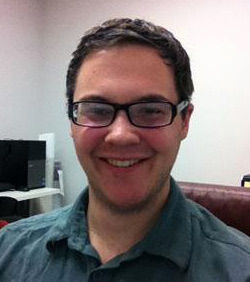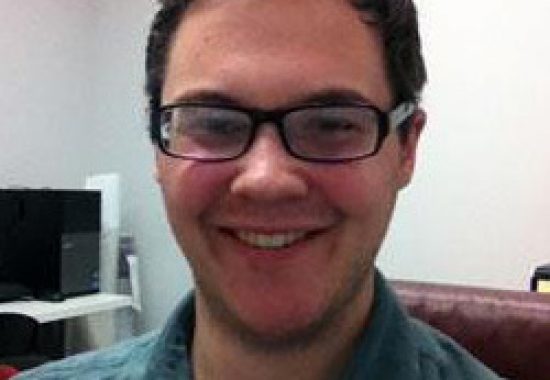Former fellows reflect on their experiences in the NIH-funded program
For the past five years Moss Rehabilitation Research Institute (MRRI) has been the lead site in a postdoctoral research program funded by a National Institutes of Health (NIH) training grant in translational neurorehabilitation research. Students who qualify for the unique fellowships made possible by this grant are given opportunities to gain exceptional in-depth mentorship and training critical for careers in translational neurorehabilitation research. The training opportunity is offered in collaboration with the University of Pennsylvania’s Department of Neurology and Center for Functional Neuroimaging (Penn).
“The three-year fellowship is an apprenticeship model of training designed to offer mentored experience in meeting the challenges of the translational process,” says John Whyte, MD, PhD, principal investigator and director of the post-doctoral research training program, and founding director of MRRI. “Fellows spend most of their time conducting research in the lab of a primary mentor, but typically also select a secondary mentor. In keeping with our goal of promoting translational research, if a fellow’s primary mentor is largely engaged in basic science, we will encourage that person to have a secondary mentor whose work has more of a clinical focus, and vice versa.”
Within a few months of beginning the program fellows propose a training plan tailored to their background and interests, which serves to identify the skills they will need to be successful in their chosen careers, as well as the training activities they will use to obtain those skills. Next, fellows outline research projects that typically will result in publications and facilitate the transformation of their knowledge into procedural skills.
“We also provide a general curriculum for all fellows,” adds Dr. Whyte, “which includes lectures on translational research topics, and a variety of small group sessions. This curriculum offers opportunities to gain essential skills—such as grant writing—in addition to those that fellows acquire from their individually tailored programs.”
A wealth of expertise and resources
Trainees accepted into the fellowship from basic science backgrounds typically have exhibited exceptional research skills in their investigations of theoretical aspects of cognition, language, or neuroscience, yet have had little exposure to patient populations, clinical neurorehabilitation or the real world consequences of impairments. Conversely, trainees completing clinical doctoral programs typically have a more sophisticated understanding of the realities of patients’ problems, but less training in the underlying science that might address them.
Matthieu de Wit, PhD, for example, conducted experiments testing the well-known two-visual systems hypothesis while earning his PhD in experimental psychology at the University of Hong Kong. His dissertation was awarded the prestigious Li Ka Shing Prize, an annual prize that recognizes the top four dissertations across all departments and schools of the University of Hong Kong. After receiving his PhD, Dr. de Wit was eager to gain exposure to research approaches of closer relevance to clinical application.
“When I first learned about the program developed by MRRI and Penn,” says Dr. de Wit, “I was particularly attracted to its focus on deepening patient- and treatment-related research skills. I also was drawn to the opportunity to gain the practical skills, such as grant writing, that I knew I would need if I pursued an academic career.”
During his T-32 fellowship training at MRRI, between 2013 and 2015, Dr. de Wit was engaged in projects that focused on motor cognition in individuals who had experienced stroke, as well as in neurologically intact young and aging adults. Under the guidance of primary mentor Laurel Buxbaum, PsyD, at MRRI, he examined the relevance of motor system integrity to our ability to predict both human and non-human motion trajectories, and while under the guidance of secondary mentor Branch Coslett, MD, at Penn, he developed expertise in the use of transcranial magnetic stimulation. Highlights of his fellowship include the authorship of several papers, including a 2017 article in the Journal of the International Neuropsychological Society, and the receipt of an esteemed Albert Einstein Society grant to develop a novel treatment for limb apraxia.
“The MRRI/Penn fellowship afforded me access to a wide range of excellent resources, both in terms of the expertise of my outstanding mentors, and other scientists in the program, and in terms of the highly privileged access I had to patient populations and sophisticated research equipment,” says Dr. de Wit, who has recently accepted a tenure-track position as an assistant professor of neuroscience at Muhlenberg College, a selective liberal arts college in Pennsylvania.
Extraordinary career preparation
 After earning a PhD in clinical psychology at Pennsylvania State University, with a special focus on cognitive and affective neuroscience, John Medaglia, PhD, was eager to deepen the breadth and depth of his then relatively limited clinical experience along with increasing his sophistication in cutting edge neuroimaging research techniques, and prepare for a satisfying career in academia.
After earning a PhD in clinical psychology at Pennsylvania State University, with a special focus on cognitive and affective neuroscience, John Medaglia, PhD, was eager to deepen the breadth and depth of his then relatively limited clinical experience along with increasing his sophistication in cutting edge neuroimaging research techniques, and prepare for a satisfying career in academia.
“I was searching for a postdoctoral fellowship that would provide hybrid training across the fields of neuropsychology and neuroengineering,” says Dr. Medaglia. “I knew that ultimately I wanted to be able to design new strategies for intervention in neurorehabilitation, using techniques involving brain network analysis and brain stimulation.”
Intrigued by the program jointly developed by MRRI and Penn, Dr. Medaglia set out to identify investigators whose work he felt was a good match with his own interests and strengths. While researching and applying to the program, Dr. Medaglia declined an opportunity to move into a tenure track position at another institution, and pursued the fellowship instead.
“The opportunity to collaborate with Danielle Bassett, PhD, at Penn was a major draw for me, because of my desire to gain in-depth experience in network analysis – an area in which she is a renowned expert,” says Dr. Medaglia. “I also had two other excellent mentors: Roy Hamilton, MD, MS, at Penn, who specializes in treating patients with cognitive deficits caused by stroke, and Dr. Sharon Thompson-Schill, PhD, at Penn, who was my cognitive neuroscience mentor.”
Among the many highlights of his fellowship experience was his selection – only a year and a half into his fellowship – as recipient of the much sought after NIH Director’s Early Independence Award. The award, which is bestowed by the NIH to outstanding early career scientists, enabled Dr. Medaglia to bypass the remainder of his traditional post-doctoral training, and accept an independent research position at Penn.
“It’s really impossible to overstate the opportunity my MRRI/Penn fellowship provided me in terms of access to extraordinary tools and concepts and clinical populations,” says Dr. Medaglia, now research assistant professor in the Department of Psychology at the University of Pennsylvania. “My access to other scientists in the broader Philadelphia network of researchers was pretty special, too. People at Moss and at Penn do great work, really care about what they are doing, and work hard at it. I directly attribute my current success to the path I took in securing my fellowship – I don’t see that it would have happened otherwise.”



218 comment on “Postdoctoral research training at MRRI”